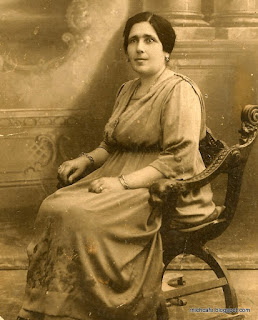When the first thing you read in the morning is “Benihana Bashes Bloggers,” your hackles rise and you go straight to Alexander McNabb’s blog Fake Plastic Souks to read about it.
Benihana Kuwait is suing blogger Mark, of TWENTYFOUREIGHTAM, for a review he wrote on the Japanese restaurant last December.
You can imagine the uproar in the online community! There has been an avalanche of tweets on Twitter ; Benihana Kuwait’s Facebook page has been inundated with comments and bloggers have united in condemning the lawsuit.
This being a Café, and having blogged about a restaurant in Dubai not long ago (see Saladicious? Delicious! 10 January 2011), I feel I have to add my voice to the shock, alarm and disbelief.
I had a good experience at Saladicious. I thought the food was excellent and I look forward to going back. But, like Mark (@mark248AM) at Benihana, I could very well have not have been “impressed.” I would have written just that, adding that I wouldn’t go back.
So are we supposed to feel intimidated? No way!
This is an excellent case study for marketers, PRs and brands on how to deal with the online community, blogs in particular. Unfortunately, a brand is as weak as its weakest link. In Social Media it takes just one tweet by Mark, one re-tweet by Alexander (@AlexanderMcNabb) and a couple of blog posts to rally a community without borders.
It is a PR and management fiasco of gigantic proportions, to say the least.
Dubai blogger SeaBee said on his blog This is Dubai: “In my opinion the unprofessional, unbusinesslike action needs to get as much exposure on the 'net as we can give it… I hope you other bloggers and social media users will expose these people too.” Too right!
Mark will be live on air at 11 am Dubai time on DubaiEye 103.8FM. The Benihana story has also been reported today (Monday) in Gulf News and will be The National on Tuesday (February 1).
Other blogs to visit on the subject:
- Suddenly Two – Benihana Kuwait #FAIL
- Five One Eight – Mark Vs. Lawsuit
- His & Hers – Being Sued For A review
- Catalyze – How NOT To Respond To Negative Feedback
- Beirut Drive-by Shooting -- Shut Up!
- Who-sane's -- A Very Unnecessary PR Disaster
- Beirutspring.com -- Benihana in Kuwait is a Terrible, Terrible Place. Stay Away from it
- Fake Plastic Souks -- Why The Benihana Story Matters
- The Next Web -- Restaurant in Kuwait sues blogger over nasty review
- Ivy Says -- Blogger Gets Sued For Blogging About His Diner -- Seriously???!
- Blog Baladi -- Blogger sued over restaurant review
- Lebanon Aggregator -- Bloggers in Lebanon write about blooger sued by Benihana Kuwait
- +961 --Benihana sues one of the most popular bloggers in Kuwait!
- oi Nagham! -- Benihana vs The People
 |
| From Blog Baladi and Ivy Says |









